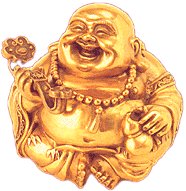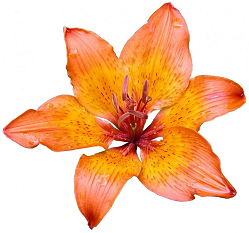|
|



|
|
HOME
Meditation What is Meditation? Power of Now Concentration & Insight Law of Attraction J Krishnamurti Tao Te Ching Dhammapada Buddhist Classics
|
Random Image
Meditation
What Is Meditation?
Conversation between Jiddu Krishnamurti
& Professor Allan W. Anderson
...continued from part two
Krishnamurti: So if it is divorced from life then meditation has no meaning. It's just an escape from life, escape from all our travails and miseries, sorrows, confusions. And therefore it's not worth even touching.
Anderson: Yes. Right.
Krishnamurti: If it is not, and it is not for me, then what is meditation? You follow? Is it an achievement, an attainment of a goal? Or is it a perfume, a beauty that pervades all my activities, therefore it has tremendous significance? Meditation has tremendous significance.
Then the next question is: is it the result of a search? Joining Zen group, then another group, one after the after, one after the other, practise this, practise that, don't practise, take a vow of celibacy, poverty, or don't speak at all, fast, in order to get there. For me all those are totally unnecessary. Because what is important is the seeing, as we said yesterday, the false, not I judge the false as true or false, but the very perception reveals the truth or the falseness of it. I must look at it. My eyes must look at it without any prejudices, without any reactions. Then I can say this is false, I won't touch it. That's what happens. I won't. People have come to me and said, oh you have no idea of all the things they have said, "You must", I said, "Nothing doing. To me this is false, because it doesn't include your life!"
Anderson: Yes.
Krishnamurti: You haven't changed! You may say, "I'm full of love. I'm full of truth. I'm full of knowledge. I'm full of wisdom." I say, "That's all nonsense. Do you behave? Are you free of fear? Are you free of ambition, greed, envy and the desire to achieve success in every field? If not, you are just playing a game. You are not serious." So, from that we can proceed.
Anderson: Yes.
Krishnamurti: That meditation includes the whole field of existence, whether in the artistic field, or the business field. Because, to me, the division as the artist, business, the politician, the priest, the scholar, and the scientist, you know, how we have fragmented all of these as careers, to me, as human beings are fragmented, the expression of this fragmentation is this, business, scientist, the scholar, the artist. You follow?
Anderson: Yes, yes, yes. I'm thinking of what goes on in the academy with respect to this. We are always saying to each other as academicians, "For heaven's sake! Let's find an ordering principle by which to bring all this into some kind of integration, so the student can really feel that he's doing something meaningful. And not just adding another freight car to the long train of what he hasn't even seen."
Krishnamurti: Quite, quite.
Anderson: Yes.
Krishnamurti: And meditation must be, or is, when you deny all this - systems, methods, gurus, authorities - a religious question.
Anderson: Yes, profoundly religious.
Krishnamurti: Profoundly religious.
Anderson: Oh, yes.
Krishnamurti: Now, what place has an artist in not only the social structure, in its expression of the religious? You understand? What is an artist, sir? Is he something apart from our daily living? The beauty of living. The quality of the mind that is really religious. You follow? Is he part of that? Or is he a freak, outside that? Because he has certain talents? And the expression of that talent becomes extraordinarily important to him and to the people.
Anderson: In our culture it often seems that the expression of that talent brings him into conflict with certain conventions.
Krishnamurti: And also expressing that conflict in himself.
Anderson: Of course. Yes, we have a long tradition in western civilization of the artist as an outsider, don't we.
Krishnamurti: Yes. Something outside. But he is much more sensitive, much more alert to beauty, to nature, but apart from that he is just an ordinary man.
Anderson: Yes, of course. Yes.
Krishnamurti: To me, that is a contradiction. First be a total human being. And then whatever you create, whatever you do will be beautiful.
Anderson: Of course.
Krishnamurti: Whether you paint, or whatever you do. Don't, let's divide the artist into something extraordinary. Or the business man into something ugly, the professor just living in the world of the intellect, or the scientist in the world of physics, and so on, so on. But first there must be human being. You follow, sir? Human being in the sense, the total understanding of life, death, love, beauty, relationship, responsibility, not to kill. All that's implied in living. Therefore he establishes a relationship with nature. And the expression of that relationship, if it is whole, healthy, is creative.
Anderson: This is very, very different from what many artists conceive of as their task. Especially in modern times artists have this notion that they are in some sense reflectors of the fragmentation of their times.
Krishnamurti: Absolutely.
Anderson: And so they make a statement which holds up the fragmentation as a mirror to us, and what has this got to do with anything else but reinforcing the fragmentation.
Krishnamurti: Absolutely.
Anderson: Yes. Yes I quite understand what you are saying.
Krishnamurti: You see that meditation covers the whole field of existence. Meditation implies freedom from the method, the system, because I don't know what meditation is. I start from that.
Anderson: Yes.
Krishnamurti: Therefore I start with freedom. Not with their burden.
Continue to next part...



Contact • Feedback • Typo • Privacy • Home